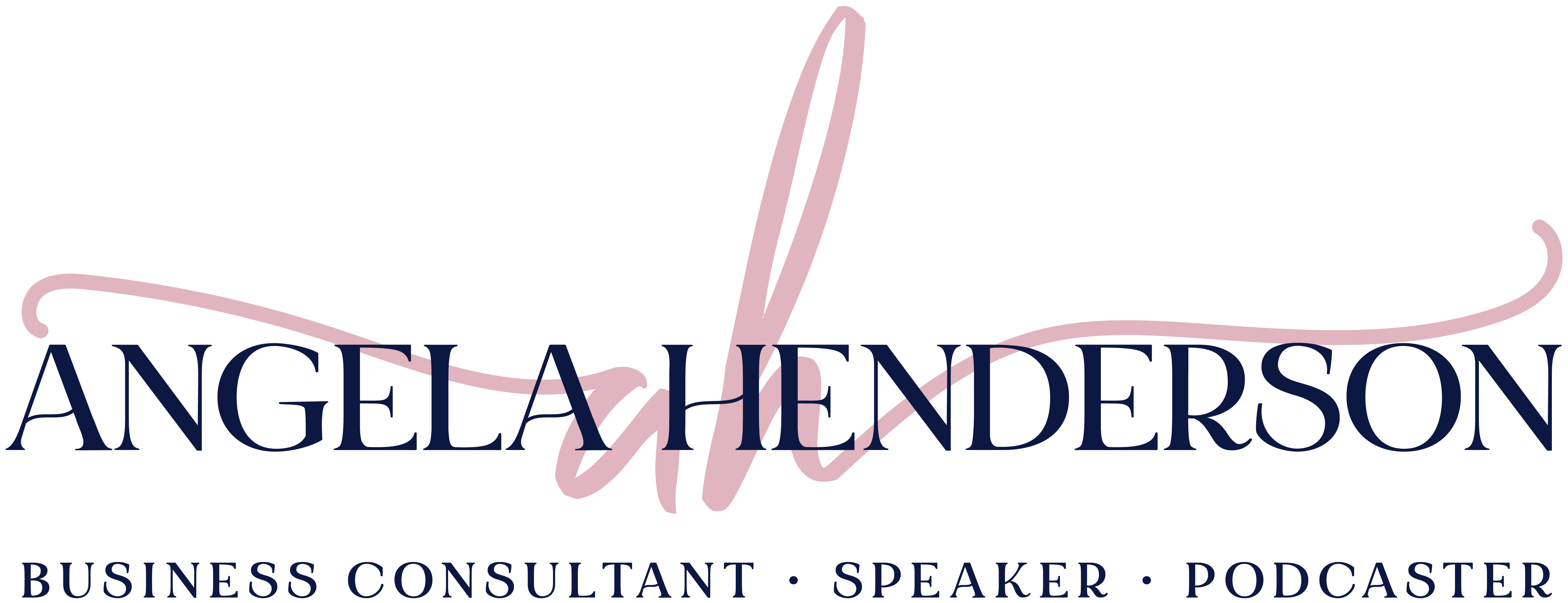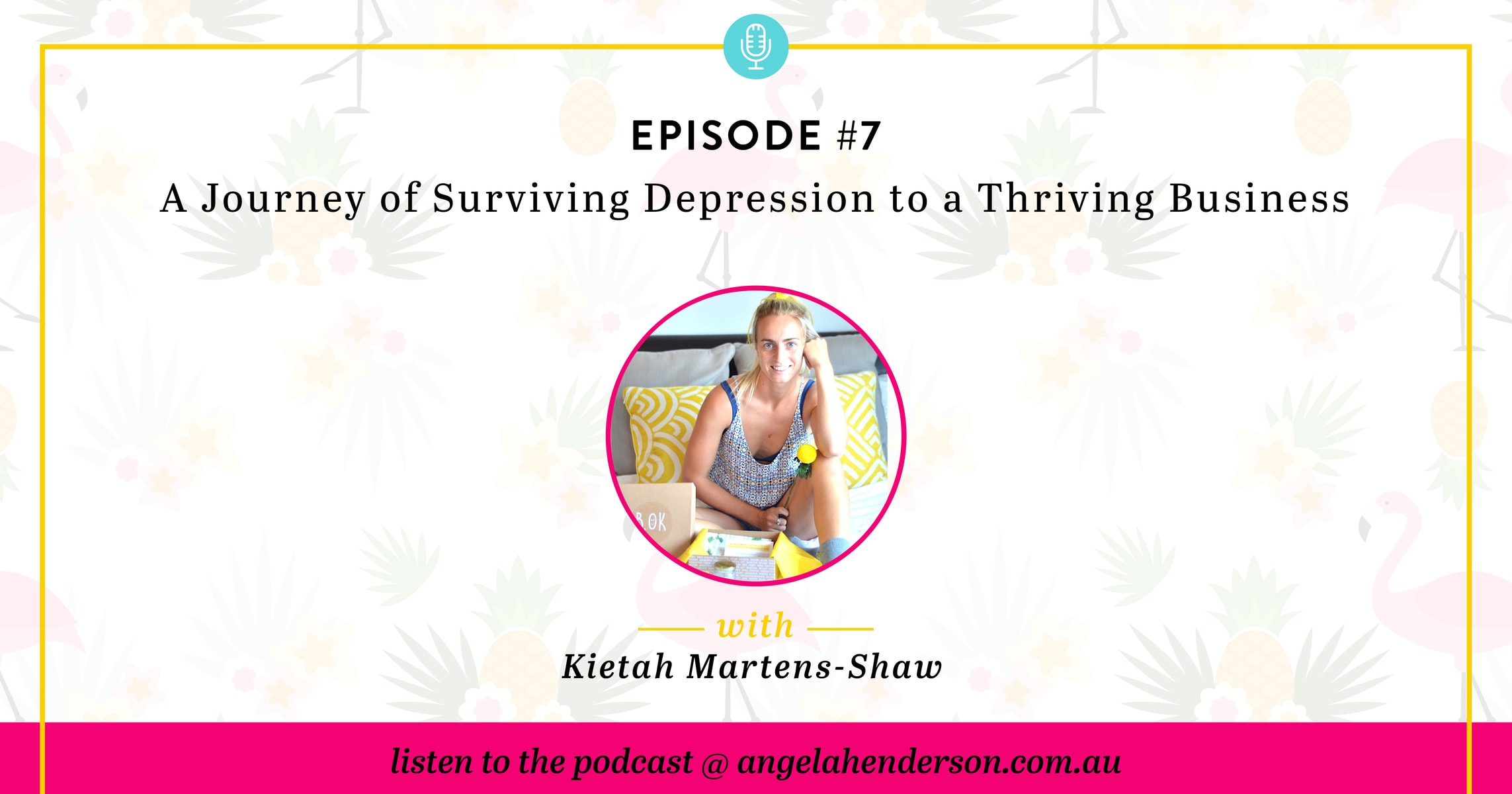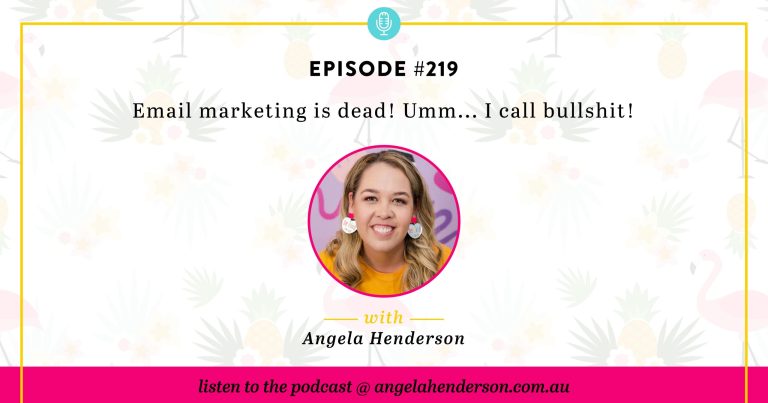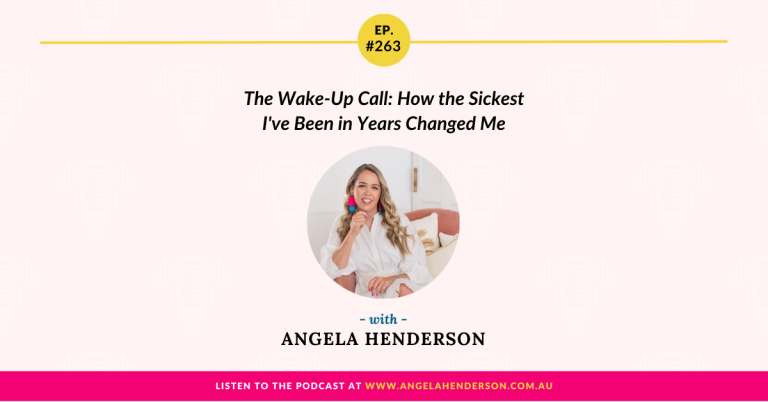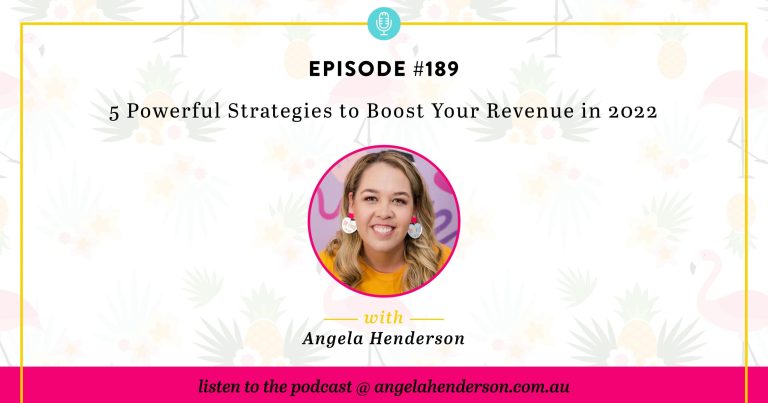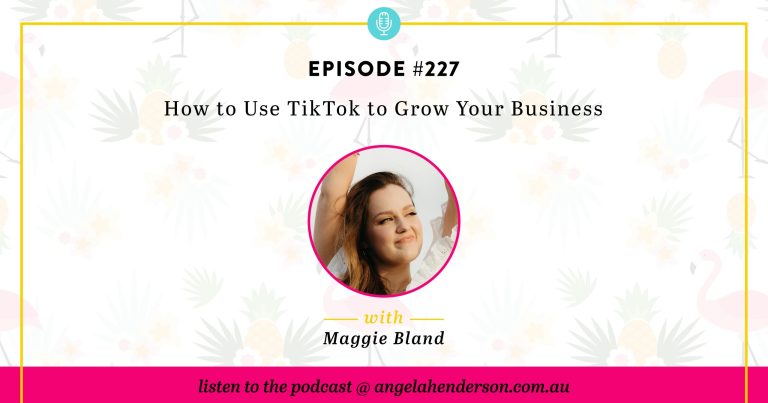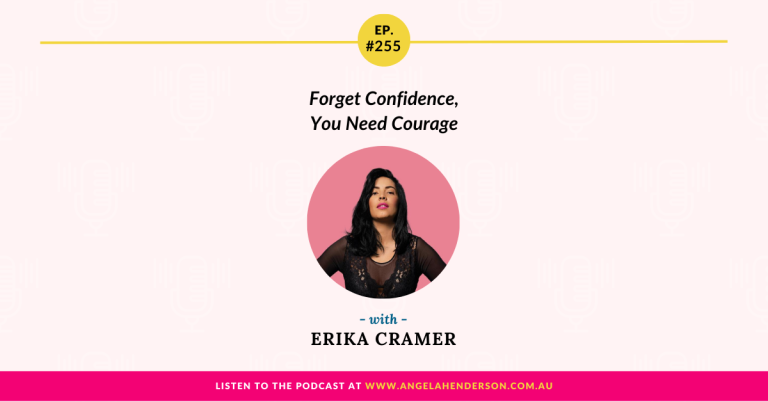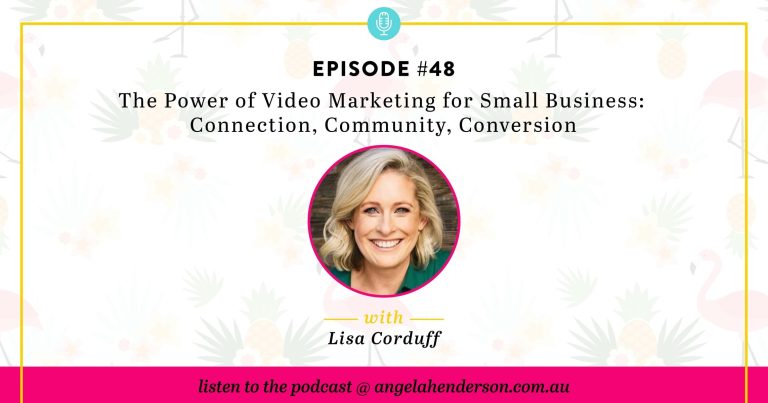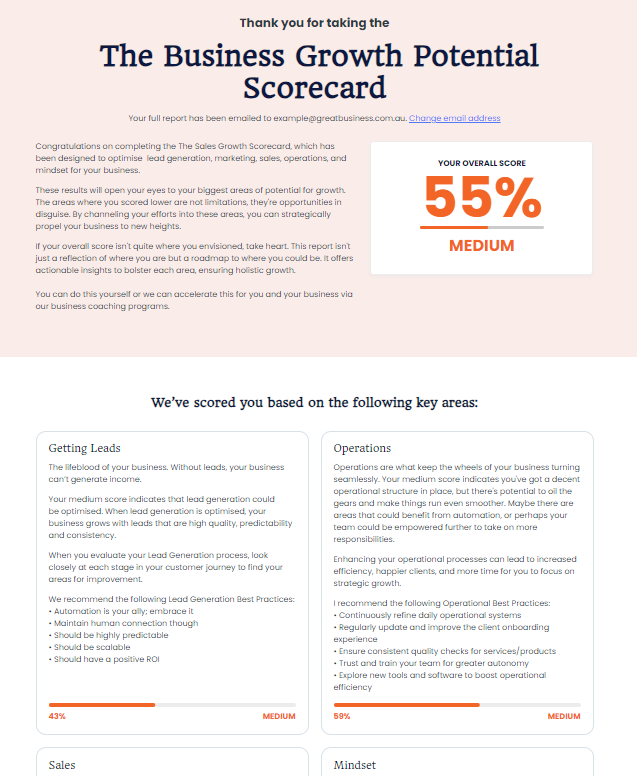In this episode, I am joined by Kietah Martens-Shaw, as we talk about a very important topic – Mental Health. She shares her own journey with depression and anxiety which helped cultivate the BOK Ideas Movement. The company encourages us to live each season with a reason by sending purchased boxes that help people change their mindset and move forward.
In the conversation, Kietah also gives us insights and the tools she used to move past her negative feelings to a more positive outlook. We also talk about depression and how it can affect people despite their happy facade.
Important Links Mentioned in the Show:
Angela Henderson Active Business Facebook Group
Angela Henderson Facebook Business Page
Prefer to read A Journey of Surviving Depression to a Thriving Business? Here’s the transcript:
ANGELA:
You’re listening to the Business and Life Conversations podcast, with Angela Henderson, episode number seven.
Hey there, you’re listening to the Business and Life Conversations podcast, my name is Angela Henderson, and on this show we talk about improving your business, life or both. By having amazing and rich conversations with brilliant guests. Who will inspire you and who will give you tips and tricks, to help you grow both in life and in business.
All right it’s another episode of Business and Life Conversations podcast with me, your host Angela, from Angela Henderson Consulting. And I along with all of you are so fortunate to have the most amazing guest with us today to talk about a very important topic, Mental Health. During today’s show, you’re not only going to get to hear a story about Kietah’s own personal journey with depression and anxiety, but through her own personal experience cultivated a unique concept in method that provides support and encouragement for others nationally around Australia, to live each season with a reason. The B.OKideas movement. So sit back grab a coffee, tea, wine or heck a Mojito, you know it is five o’clock somewhere, because the show is going to be brilliant.
Welcome to the show, Kietah.
KIETAH:
Thanks for having me, nice intro.
ANGELA:
Indeed, thank you, thank you. But thank you for being on the show, if you can’t tell I’m super pumped to have you here today. We were just talking pre-show. Yes, I’m not too sure, you know now, but before the show you did know that I’m a massive advocate for mental health. Not only because I’m a mental health clinician of 15 years, but I too over the last 18 months have gone through extreme severe depression and anxiety. So you could only imagine how I couldn’t get to the computer quick enough, when you applied. So I was reading through your topics and I was like, oh my gosh where do I get to my email so I could contact you, because topic of mental health is true and dear to my heart. It’s one that’s not talked about in our society often, so I’m super, super excited to have you here. If my level of my voice isn’t showing you that, it is.
KIETAH:
It is, thank you for having me.
ANGELA:
So pumped to have you. So before we jump in to knowing more about this movement you’ve created, which is great, and how also 10% of that goes to another agency which we’ll talk more later. I’d love the listeners, I guess to rewind a little bit, about who you are, what you do? But also tell us a little bit more about your story so far, on your own mental health journey.
KIETAH:
Yes of course, my name is Kietah Martens-Shaw, thanks for having me, and yes I guess I wanted to share my story with you because I have found since I’ve been sharing my story as much as I have, that a lot of people have been inspired by it. And, oh yes, it all started around three and a half years ago I actually got cervical cancer, which was a bit of a world shaker for me. I was a very sporty independent person, and all of that was turned upside down and it is something that has shaped myself to the day now. And did lead towards me going through a period of depression and anxiety. Over the last three years I’ve now had two cervical cancer operations and kidney disease as a reaction to my medication, and for me, I think the biggest thing that lead me into a depression was, I really lost my urge to be here. I lost the reason why I was here, I lost all feelings of drive to live, and it was really because my independence was gone.
I lost what felt real with life and was kind of just gliding through things, anxiety for me was at one point where I just couldn’t concentrate on one thing at a time, I couldn’t stop thinking about it coming back, I couldn’t stop thinking about the next checkup and always anxious and worried about what was about to happen, and for me, at the age of 22 when it all happened it was something that really propelled me into an adult world and a life of responsibility, and paying bills, and finances and surgeries and things like that which I just.. no-one can prepare for.
ANGELA:
Totally.
KIETAH:
I was very lucky to have support around me but in a lot of cases I felt very alone. I felt very misunderstood and at the age of 22, a lot of my friends were going to Europe and travelling and doing their own thing, and not in my case, going into a hospital and getting checkups and things like that, so it was quite hard for them to relate to. And, in that case it was hard for them to talk to me about it. It was hard for them to bring that up in conversation and I guess that kind of segregated me into a feeling of loneliness and put me in a state of depression, that I really didn’t understand and didn’t know how to get out of. And now for me it’s a very big passion of mine to let people know that they’re not alone and to start this conversation, because when I was going through what I was going through, it was a hard topic to talk about. Only just three years ago, you know, and a lot has changed in three years and I hope that I can be a huge part of that change and turning that stigma around about the conversation.
But, I think in a lot of cases for me, it was, should I talk about it, oh no don’t talk about it, you know, no one’s interested or no one understands it, or oh I’ll freak someone out and they won’t want to be my friend or they won’t … you know it’s a whole other element to a friendship and it was a very hard conversation for me to have and very hard for me to get through, and even still to this day I have periods where I’m unsure what I’m doing and uncertain about my direction and my mental state. But I suppose in the last three years, the thing that I’ve learned the most is, having a purpose is really key. And, I’ve found that with B.OKideas. But also, yes believing in the path that I’m on and knowing that tough times don’t last. And, for three years I was waiting for that moment to feel, that’s why that all happened, or that feeling of, okay, all right, that was pretty crappy but let’s move past that and concentrate on this which is quite positive.
But I wouldn’t, strangely I would not change a thing, I’m a very sympathetic and empathetic person now. I understand people on a completely different level and I feel more purpose than ever in my life and I love being able to help others and I love knowing that what I’m doing may save or help one or two or a thousand people that were in my boat and making sure that, that doesn’t happen to them and feel the way that I felt.
ANGELA:
And would you also say that, you know, you said initially when everything was happening that you had friends who were like travelling and they were doing all those things. You know as young people we are quite consumed within ourselves, let’s be honest. You don’t really think much about anything, you’re like, “Where’s the next beer or where’s the next trip or,” you know you’re just like getting through Uni, you’re doing whatever. But I would only assume that because of what you’ve had to go through you’re in a very different spot anyways, from where some of your friends probably even are. They’re probably still having to learn some of those things that you’ve already had to learn. Like you said, paying bills for surgery, doing the checkups, you’re probably very in tune with yourself, what are your thoughts about that?
KIETAH:
Absolutely. I’ve spoken to a lot of people that have gone through anxiety and depression themselves and something that we can really relate on is, how in tune we are with our own feelings now and how in tune we are with, I’m feeling a bit of anxiety, this is making me feel uncomfortable. But not only what you’re feeling but also in tune with and aware of how you can get on top of those feelings, and how you can, I suppose, deal with that in the moment, and overcome it and for me for example, I’ve been going to a psychologist now for a year and she’s incredible. And, she’s taught me serious and important methods and actual mechanisms to improve my, I suppose, like my mental state and how I’m working through things and with those tools, with those actual tools I can in a moment be like, okay I’m feeling a big of anxiety it’s because of this, what I’m going to do is this, and work through those methods.
And in some cases people who experience anxiety and depression etcetera, it’s not a bad thing, it’s a really great thing to open your eyes to another world and be able to be more in tune with yourself.
ANGELA:
I know it relates to you, like definitely, I mean anxiety probably plays more key for me than anything else and there’s just sort of things that I’ll notice along the way when the anxiety’s starting to creep in. Like you said, you’re more in tune with your body going with, hold on, why do I physically feel like this, and then you can name it, oh yes, it’s anxiety creeping in and like you said you can almost step backwards and go, okay, what’s happened in the last week, what’s happened in the last 24 hours, or what do I need to do now? So, whereas before you had this feeling but you weren’t able to name it, for me anyways. I mean every one’s journey is very different but I think, as what you said, I guess un-fortune or fortune any way you want to look at it is, when you have full blown depression and anxiety the reality of it is, it may impact us again at some stage in our life, but more than likely we’ve got better coping strategies to deal with it if it hits us out of the blue.
But it is, it’s something that we just have to be mindful of, so the quicker we can get those tools, like you’re talking about and have those strategies, I think it’s so much better, but yet, so many people don’t do it.
KIETAH:
Absolutely and you know the taboo of, I go to a psychologist, there’s a very big stigma around that, you’re crazy or why do you go to a psychologist? Yes, I really strongly believe that when people let that wall down and they open their arms to such an amazing system of help, that they’ll really see how much it can transform you, whether you have depression, anxiety or you’re just going through a tough time, you don’t need to have a mental illness to go to a psychologist. They’re professionals that are going to help guide you and those strategies in place for you every day to day. So, yes, I’m a big believer in it.
ANGELA:
And though we don’t talk about mental health the reality is your story is one of many, such as mine. And I’d like to give some additional stats for those people who are listening out there who might be shaking their head, kind of going, they’re bringing up some great points or I’ve been feeling this way for a while and I don’t know where to go or etcetera. For those in Australia, now I can’t talk about obviously the statistics around the world, because that would take me an entire podcast to go through. But for Australia in particular, suicide remains the leading cause of death for Australians aged between 15 and 44.
The other stat that’s quite amazing, in from a numbers point, Australia’s suicide rate is the highest it has been for the last ten years and this is a reported back in 2015, where we have 3,027 people who ended their lives in Australia for that year. Which at that particular time was eight people every single day were taking their lives. There was on average one person every three months. And what genuinely breaks my heart is that if you had a broken leg, people would go and get help, if you had a broken back you would get help, if you had broken arm you would get help. But if your heart is broken, people are so reluctant to get the help they need and this is why we’re ending up with close to 3,000 if not more suicides a year on average, eight a day here in this country. Why do you think that is?
KIETAH:
I think it’s back to the stigma as well, there is a large stigma around having that discussion but also it being considered as a weakness and a lot of people don’t want to admit, oh you know, I’ve got anxiety or depression and it’s a weakness so they internalise it. So, if someone’s internalising something they’re not actually reaching out to others. And it could be as simple as, you get fired from a job and you just talk to a friend about how that makes you feel, but in a lot of cases people keep it inside and from just a job that they’ve been let go from, it could end up being a year battle with depression and, “Why me and I’m a failure,” and all of these really unhealthy messages in your own mind, and you really do need to get help. Whether it’s a friend, just having a conversation, for them to bring you back to reality and say, “Hey no you’re not dumb, you haven’t been fired because you’re worthless and weak,” and getting that reiteration and positive reiteration and I suppose bringing you back to reality.
Because in a lot of cases, you are making these things up in your mind, you are building these things up to become something that wasn’t even there in the first place. And a lot of people don’t see that, they’re not aware of that, and that’s the awareness thing as well. I think it is really traumatising statistics that you are going through. I personally lost two close friends in one year just before I launched B.OK, who took their life and it was very interesting for me to, I suppose work into why and how and what they were feeling and talking to family and friends and really getting to the bottom of what was going through their minds as well. And at the end of the day there’s not much you can do to understand it, but be there for them and to listen. But yes, in a lot of cases people are building these things up in their own minds to escalate to a point where it’s like, hold on, hold on, you need a little bit of guidance here to get you back on track to what’s positive and real.
ANGELA:
I also think so many times it’s often that depression has also a stigma or a façade or you must be sad to be depressed, so therefore, if you’re not sad you are fine. I wrote a blog article when everything first kind of happened with me and it was called, ‘Just because I smiled, doesn’t mean I’m not depressed.’
KIETAH:
Yes.
ANGELA:
Because so many people, I’m including your friends, I’m assuming there, they took their lives, you know you look at Kate Spade, Anthony Bourdain, I do believe in the last week, that the façade is, everything’s cool. They’ve got millions of dollars, they’ve got their families, they’ve got this, everything’s alright and we’re less likely to actually ask people if they’re okay, because we assume everything’s okay. Would you agree, disagree?
KIETAH:
Yes, judging a book by its cover, I know how many.. I can’t tell you how many people were shocked when I actually started coming out to tell people that I was going through depression. I was an extrovert, I was happy, I was bubbly, I was everything but what you would look at if you were to draw an avatar of someone who’s depressed. Everyone’s got this ideal idea of what a depressed person looks like, and it’s not that and it’s very internal and I really, really agree with you how people see a broken arm or see something physical that you can visually see and you go, oh you should get that fixed. But unfortunately with mental health and the feeling of depression and when someone is feeling low, you can’t see that and it can be very well hidden. And sometimes the people that are hiding it the best, are the ones that are hiding something quite large, and overcompensating.
I have done a lot of research into this and I’ve actually read that a lot of extroverts are the ones that are hiding quite a lot because they’re overcompensating with their extrovert personality, and I very much apply in that case and I notice that a lot of friends and family were like, “What, you, depressed, what,” you know? And that actually made it a bigger barrier for me to..
ANGELA:
Open up.
KIETAH:
Yes, you know I was like, oh I can’t tell people because they won’t believe me, they’ll think I’m crazy, they’ll think I’m making it up, all of these different things that go through your mind but at the end of the day, you need to have your own back as well. I knew that I was not right, I knew that I needed to talk to someone and I was really lucky that I had a great support system that were open to these conversations. But for those who don’t think they do, try, you don’t know until you try.
ANGELA:
No absolutely, and I know that you touched upon it, but when I was reading on your website, your own tough times, and you felt it was hard for family and friends to reach out and offer support or know what to say, that even though you had so much support around you, you still felt more alone than you ever had before.
KIETAH:
Yes.
ANGELA:
But as a result of this feeling of loneliness, you decided that something needed to change. You weren’t going to let anyone else suffer the same way you did and thus you created this beautiful movement called the B.OKideas. Now this movement sounds amazing and obviously I’ve only read about it, so I’m super intrigued to hear more but can you explain in depth more about the B.OKidea and how it’s the only box in the Australian market that provides unique ways for individuals to be reminded and encouraged to live each season with a reason, can you talk us through that?
KIETAH:
Yes, absolutely, thank you. Well yes as you know I did feel a period of loneliness and in that period of time I said to myself, “There’s got to be more,” I’m very honest with you right now, I faced a period where I didn’t know if I was going to continue. I didn’t know how to continue with my life, or want to really. And I couldn’t think six months ahead, I might have a holiday planned or something longer term. I needed something to look at in a week, in a couple of days, something to concentrate my efforts on that was positive and not necessarily just about my depression. I wanted something to concentrate on that was a positive that would help with the depression and yes, I thought of the idea of how there’s lots of friends and family of mine that are outside of Sydney and a lot of family and friends that were trying to support via phone or text, and that’s hard to do. So I was like, how can I get people to support me while they’re not with me physically but know that they are there for me and care for me?
And I thought of the idea of B.OKideas with a B.OK box and essentially it’s a box full of the latest tips, tools and methods on how you can get through a tough time and with this, it’s got a 63 day support method. Which is an advent envelope system which you open an envelope, every seven to fourteen days, so for me this was really driven by my own personal struggles. And when I was down there was so many times when I’d be like, “Okay you’re feeling down what would you like to receive in a B.OK box?” So all of the contents, inspired by myself, actually helped me through my time as well, and with the advent envelopes the biggest motivation for that was, as I said before, I couldn’t think, a month, three months, six months ahead, I needed something a little bit more now, or shorter term. So, with the envelopes, opening a new envelope every week will have a new quote, concept and gift for the recipient to concentrate on. And it guides them through mindfulness, relaxation, meditation and different methods for them to work through.
And having that seasonal aspect, you’ve said, living each season with a reason, I was very affected, myself by season and there is a very high rate of people who go through depression during winter and during those tougher months where.. and seasons where you’re actually stuck indoors or you’re not doing the things you love when you’re outdoors and getting that mental health outlet. So for me there was a big inspiration around doing seasonal boxes, and with this 63 days, you can be actually providing someone a support every single season.
So we’ve got a subscription base as well, where the person can purchase the subscription and they receive the B.OK box every single season and getting that 63 days every season and for me it was all about, hold on what happens after 63 days, I want this to be something that people can access consistently and it’s not just one box that you purchase at one point in your life. It changes, it updates, it has those tools and methods each season for you to access. I think I answered the question there.
ANGELA:
Yes, absolutely. So again, so how would people if they know someone who might need this box, tell me how would they.. do they.. like you said it’s a subscription or can they go and buy one box for 63 days, how would a family member be able to purchase this?
KIETAH:
Yes, well for me I wanted to make it very easy and accessible for someone who is supporting someone going through a tough time, to be able to reach out. So, that’s the whole point of it. But, I also want people who are going through a tough time and don’t want to wait for someone else to support them and just support themselves, they can purchase the box. So, a B.OK box can be purchased, one a season, so if you decide that you’d like to buy one for winter this year and then you won’t like one until spring next year. It’s a matter of a one off purchase, that’s fine. However, we’ve had quite a few subscriptions come through which means, they are going to receive a B.OK box at the beginning of every season. They’ll be the first to receive the latest tools and tips and methods, for the B.OK box that season.
With that, they’ll also receive a surprise B.OK box for their birthday, which is very exciting and just adding a bit of added value there, and they’ll have access to some discounts around some mental health brands that we’ve got on board and sending B.OK boxes to any family and friends in need as well. So, yes it’s all about creating a bit of a community, which I think we’ve done really well, on and offline so far.
ANGELA:
So then, with that so that people can purchase it that way, so I guess obviously because this is about Business and Life Conversations, talk me through a little bit about what your business model is?
KIETAH:
Yes.
ANGELA:
So are you profit, not for profit, tell me about that?
KIETAH:
So we’re a social enterprise, so we are definitely backing the mental health world and we have 10% of our profits going to, Waves of Wellness, which is our charity partner. I had a very big passion to join with Waves of Wellness, because I personally connected with what they’re doing. So, they’re providing people who are going through tough times with mental health, a non-clinical environment to give them advice on anxiety, depression etcetera, and doing it on the beach. And after they have a session with a psychologist, they’re actually heading into the ocean and going surfing and one of my big, I suppose, things that helped me through, in addition to starting B.OK, was surfing and the ocean and the outdoors. And I’m a really big advocate of those who are going through tough times, just to take a stroll or just to go for a swim in the ocean, and something so small as that, can really change and flick your mindset into a more positive state.
So yes, what Waves of Wellness is doing is really amazing and we want to support that. So each season we are donating 10% of proceeds to Waves of Wellness, and we’re also trying to organise community events each season to build that money up. Which is really exciting.
ANGELA:
Dude totally, totally, awesome. Because I know with working in the mental health wards, for example that obviously at some stages in mental health you have to be admitted. However, unfortunately, yes or fortunately, I guess how you would go on and look at it. We are fortunate that we have medical support, yes. However, I remember when I would walk into the wards I was like, how can people recover in here? Sometimes. I’m like, and this is a public not the private, alright.
KIETAH:
Yes, yes.
ANGELA:
But I’m like, it’s dark, it’s gloomy, it’s just so clinical, so the fact that Waves of Wellness is another outlet for those who are in that crisis peak, all right, that they can still access a psychologist, but I couldn’t agree more to you about the importance of sunshine, blue skies, feeling sand between your toes, I think all of those things are something that mental illness or not, people are missing in their day to day lives.
But the benefits, if you are suffering or struggling just in life, you don’t have to have a full blown mental illness, but people could benefit. So, Waves of Wellness they get 10% donations, every season to help that grow. You also do some community events which is great. Tell me though, what have you found is your biggest struggle for the B.OKideas movement? Is it awareness, is it partners, is it staff? What is it?
KIETAH:
Probably a mixture of all of that. I am a very driven hard working person and I struggle to say no, and I always want to be doing more. So, for me getting help is definitely something that would be a struggle of mine and, at the moment it’s not at the point where we can hire anyone to support, but it is one of those situations where you like, “I could be doing more or we could have doubled the donations,” or you know whatever it is. But, I really do believe there have been things I’ve put in place that are starting to support that, for example, we’ve got an on-line community on Facebook, B.OK Buddy Community, and with that there’s been so many different people come from all over the world that have said, “Hey can we host a B.OK buddy breakfast, can we get on board and support this, this and this, and how can we emphasise what you’re doing?” And it has shown since I’ve started B.OK, how incredible the people in the world are, supporting this.
So, we aren’t alone in what we’re doing and as you said, that you’re a big advocate of it. There are a lot of other people that are advocates of this, so it’s really great to see people coming out and wanting to support. So that’s kind of like an issue of mine but it’s also being resolved slowly and there are a lot of people that are willing to help. Which is great. What were the other ones? Sorry.
ANGELA:
Yes, so again, so obviously awareness, but I think you’ve touched upon it, like the partners, the staff. Obviously with any business that you’re going to go through those stages aren’t you? Where you’re like, “Okay I know I now need to put a little bit money, maybe more into awareness but I still can’t afford the staff.”
KIETAH:
Yes.
ANGELA:
You will get there over time the fact is that, you’ve gone from something where you were at a low not knowing how much longer you could go, right, in being a part of this world too, working through your own depression and anxiety, and at the end of it being able to now help so many others is a very cool thing, beautiful thing to see come, so like you said some of those business struggles are quite minor compared to what you’re actually doing collectively.
KIETAH:
Yes, yes I agree, I have a lot of moments where I kind of pinch myself and be like, “oh my gosh did that actually happen?” Or, “This is going so well”, and on the weekend I just found out, someone got a tattoo of B.OK and he was telling me that the last two months he’s been struggling with a really tough time and the Instagram and Facebook and all of the positive vibes that were coming from what community we’ve created, has helped him so much that he wanted a permanent reminder on his body. And for me, that just blows like my mind. But, I think another thing I struggle to do, like I said before, is say no.
And I do want to help as many people as possible and it’s hard for me to, like two weeks ago we supported Lifeline and we had 80 boxes at a really big lunch event that they had on, and it was so incredible to support Lifeline at this event. But at the same time we had a couple of other offers of different little events and charities and things like that, but unfortunately we can’t do everything. And, being a one man band, one woman band, sometimes yes, you have to say no, but I would love to get to the point where I am saying yes, and I’m supporting worldwide different charities and the mental health realm and get us to where we need it to be.
ANGELA:
You will, it’s going to happen, you know, one day at a time. Now let me ask, a little bit of feedback, if you could give any feedback to the listeners out there, going through something similar, can you tell us what the thing was that helped you the most? Okay, keeping in mind for those out there, everyone’s journey is very different, so I want to make sure we’re caveat at that. So what worked for you may not work for others, but I still think it’s important to hone in on the positive side of things, and what did work for you from a positive point of view?
KIETAH:
I’d like to start by saying as someone who has been through really tough times and genuinely didn’t think I was going to get out of it, I have. And these tough times won’t last, and it’s something that.. words are words, I know that, but if only I could give what’s in my mind and what I’ve experienced to other people to show them that it really does suck and it is hard and there will be periods that test you, test your longing for life and your reason to be here. But with that, it will make you stronger and it will make you drive when you get through that period, and it will come. I suppose for me I wish there was someone during my tough times saying, “You know this won’t last,” and that was a really big thing for me I genuinely believed that I would never get better. I genuinely believed that the way I was, is the way I will be for the rest of my life, and that is one of the contributing factors as to why I always said to myself, “I can’t do this for the rest of my life”, and why I didn’t want to be here.
So, knowing in your mind for any listeners that are out there, that it’s not going to last. There is support and you aren’t alone, and that’s the type of community that we are trying to create. Something that has helped me immensely was going to a psychologist. Getting that professional help and creating different methods and tools to push through different situations, has really set the foundations for me. If anything else was to happen in my future I would be a little bit stronger to cope with those times, and it took me nearly a year to find the right psychologist. I’m not sure if you go to a psychologist, but it is, it’s like you have to shop, you have to try and look for the someone that connects with you, that gives you the advice that you think is best for yourself as well, listen to yourself and be in tune with what you’re feeling when you’re with the person, but don’t give up.
I went through, I think, six psychologists and a lot of money and time, until I found the lady that I’m with now and a year on, I still find it one of the most valuable things that I’ve done. And a real key to me becoming a better person and stronger mindset.
ANGELA:
I do agree with you in that, it’s just like when you find a job, it’s when you go get a car, it’s whatever, I know there’s different analogies, but you do have to look around. Not everyone’s going to be your cup of tea, which was really great, because if we look at, you saying the psychologist is a great way, but for those out there who are going, what life’s a little bit rocky at the moment, or I’m struggling, I want to make sure you guys have the options, particularly in Australia again, about ways that you can get help.
KIETAH:
Yes.
ANGELA:
So if anyone out there is struggling with your own mental health, and it’s an emergency for whatever reason, please don’t mess around just contact your emergency services in your area immediately. So obviously in Australia that’s 000 in America and Canada your 911 and all the others countries, again unfortunately I don’t know those particular codes, but call your emergency services. For those not in emergency, such as I think what happened to you and I is that we knew something wasn’t quite right, we needed a little bit of help along the way and we didn’t need to be whisked off in the ambulance, but you know, that’s when, contact your family doctor or your GP, whatever word you’re using in your country. And during the session be open to them about what’s going on, and it’s through that conversation with your family doctor or your GP that they’re going to look at potentially different medications, therapies, referring you onto a specialist like a psychiatrist, that I went to, and if you feel nervous about your appointment like you said, ask family or friends to go with you, they will go with you, I promise you.
I promise you they will go with you. And all I can say, is it’s like you said, it’s going to suck but it will get better. It eventually gets better, but the longer you wait to get help, the harder I would find it is because the demons, whatever you want to call the anxiety, the depression, it’s harder and harder and you’ve told your brain more times than not, you know what it means, it sucks.
KIETAH:
And I think also for me one of the barriers was even finances, and I was like, how am I going to fund a psychologist etcetera, etcetera, I urge anyone that’s thinking that, that it’s not that much of a financial burden. And at the end of the day, how much are you putting in weekly for a gym membership? How much are you putting in for those physical things that are helping you? But this is also the same, it’s the same concept and on another line, you’ve also got Medicare and other support systems that can cover ten sessions of a psychologist, give it a go see if you like it, and that’s free. Call around different doctors and different places to investigate prices and different options for you because there are options, you just need to start looking for them and yes, you won’t regret it.
ANGELA:
And what Kietah’s talking about is if you’re an Australian you go to your GP for example, your family doctor, and they deem that yes, you want to see therapists, collectively they will create, it’s called the mental health care plan, that’s the words you need to use there and you get ten sessions per year, for free. Now there can be a little bit of a gap, sometimes I know my doctor, she would like, did the base on my thing I think I paid $10 or $15 to see her, so not an enormous amount when you think that a cup of coffee most people drink a day is $5. Well, my sessions worked out to less than that, so you know there are ways that you definitely can get the help you need, but again, make sure you go to your GP, if it’s an emergency, call your emergency services, please, please, please get the help that you need if you’re out there listening.
Now, for those listeners who would like to learn more about your B.OKideas services, tell us where can they follow you on social platforms, and where can they buy those beautiful boxes, if they’d like to give them to other people or donate, where can they go to find you.
KIETAH:
Absolutely. So, we’ve got a really lovely, beautiful, inspiring Instagram platform, so if you head to B.OKideas, literally just the letters BOK and then our websites www.bokideas.com, we’ve also got a Facebook page which is B.OKideas as well, and we’ve got a Facebook community group which is an online platform, anyone, anywhere in the world can come on and access weekly happiness tips, updates, and we all actually share on this platform, so that’s called B.OK Buddy Community. And it’s all about anyone that’s on the platform that wants to share, hey, I tried this new sleep method this week and it helped me with X, Y, Z, so share what works for you so that others can give it a go.
We’ve had a guy actually just put a compilation of music together because it was an anxiety free music method, and he put it on the platform and so many people have now downloaded it, using it and he just did that out of the goodness of his heart, and yes that’s all the lovely people on this platform that want to share and do good.
ANGELA:
And if people want to donate, are there options for them to donate?
KIETAH:
Yes, so with Waves of Wellness, our charity partner, you can definitely donate towards Waves of Wellness and their links are on our website. Another option is that you can purchase a box and donate it to charity, or when you purchase a box you’ve got 10% of that going to our charity partner. We’ve had quite a lot of corporate companies get on board and purchase B.OK boxes for corporate wellness programs and in exchange for larger bulk orders, we’ve actually donated some to children’s charities, homeless shelters, etcetera as well. So that’s a big part of what we do and yes, we’d love the support there.
ANGELA:
All right, now that is fab, fab, fab, fab. Now, I could keep talking to you for a long time, but I know people will probably be like, all right I’ve got to get back and work, I can’t keep listening to Ange and Kietah talk all day. So, before we wrap up I always like to end on something a little bit fun so we get to know you a little bit more. So what is the one mantra that you’re currently living by at the moment?
KIETAH:
This is my favourite. So, make your life the story you love to read. I’m very, very passionate about telling my story now, because I’m proud of my story and my life and yes, try and see that as something that you can work towards as well. You know, each day that you’re doing, tell it as a story that you want to tell and yes, working through that.
ANGELA:
Well I love that, I love your cause, I love your energy and thank you so much for being part of this show today. It’s really, really awesome, it’s touched my heart and I will definitely be making contact to explore ideas on how we can support you, through Angela Henderson Consulting moving forward. But in the meantime my team and I will also be putting together the transcript for this episode at www.angelahenderson.com.au and of course I cover all sorts of things related business and life topics inside my Facebook group, the Australian Business Collaborative of over 3,000 different businesses. Make sure to pop into the community as I’d like to see you in there also.
Alright guys, this is Ange and Kietah, have an awesome day no matter where you are in the world.
KIETAH:
Thank you. Bye.
ANGELA:
Bye guys.
Thanks for listening to the Business and Life conversations podcast A Journey of Surviving Depression to a Thriving Business with Angela Henderson. www.angelahenderson.com.au
